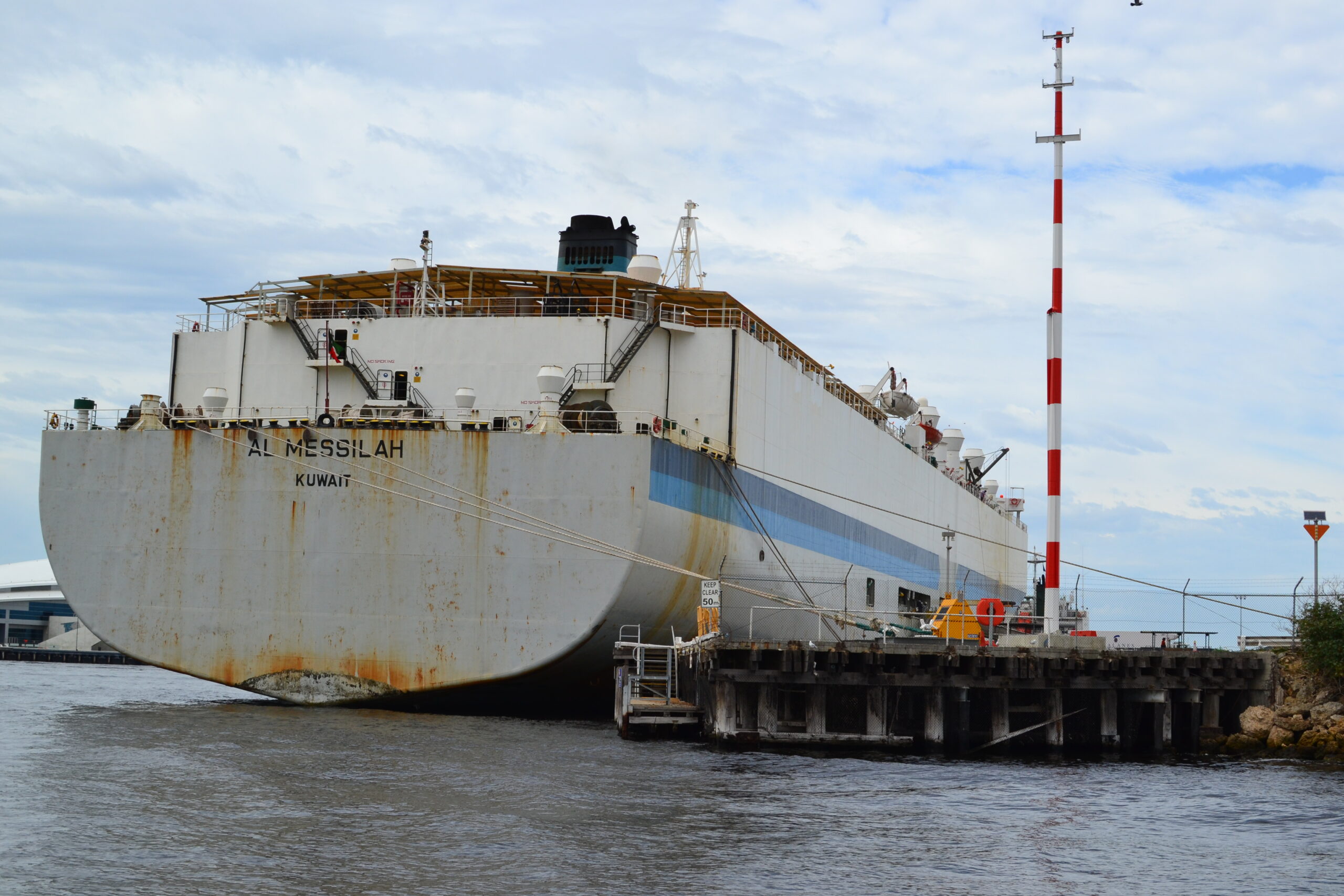In an event that amply illustrates the barbarity of the seaborne livestock export trade, the Eastern Cape feedlot manager of Kuwaiti livestock trading company Al Mawashi was arrested just before the latest shipment of sheep left East London (see previous post). This follows the NSPCA inspectors on the site discovering more than 126 large rams that had been crudely dehorned under orders from the feedlot manager.
The NSPCA said, “these mutilations happened after NSPCA Inspectors had left the feedlot, once loading of animals had been concluded for the day.
The following morning, however, “the inspectors were horrified to find the distressed rams, some bleeding profusely.”
“The horns are thick on these large rams and they were cut or sawn off, exposing nerves, blood vessels and soft tissue. This causes immense pain and suffering” said Dr Bryce Marock, NSPCA veterinarian on site.

Guidelines for Export
According to the government’s recently published Guidelines for the Exportation of Live Animals by Sea it is not permissible to load sheep if they have “horns that are sharp or protrude beyond the widest part of the animal”.
However, even after enduring this process, the rams would have still been ineligible for export because the guidelines also stipulate that sheep with “unhealed wounds” cannot be loaded.
Manager Arrested
Following the discovery the SA Police Service was called to the farm and at the behest of the NSPCA officers arrested of the Feedlot Manager for defeating the ends of justice.
Said the NSPCA “this torture and mutilation is a clear violation of the Animals Protection Act No 71 of 1962.
“NSPCA inspectors seized the rams and moved them to a place of safety where they were provided with veterinary treatment. They will not be exported.”
Constitutional Court Judgment
In a 2016 judgement, the Constitutional Court reminded South Africans that animals are sentient beings worthy of respect and that the people who are in charge of them bear a great responsibility to care for them humanely.
“If it were not for our inspectors these rams would have been loaded onto the ship to endure 21 days of further pain in appalling conditions.
“Surely it is time for the government, Red Meat Industry and organised agriculture to do the right thing, to show some compassion and afford these animals, their livelihood, the basic right of freedom from suffering,” said Marcelle Meredith, executive director of the NSPCA.
Main Image credit: Sam Wilson, Wikimedia

